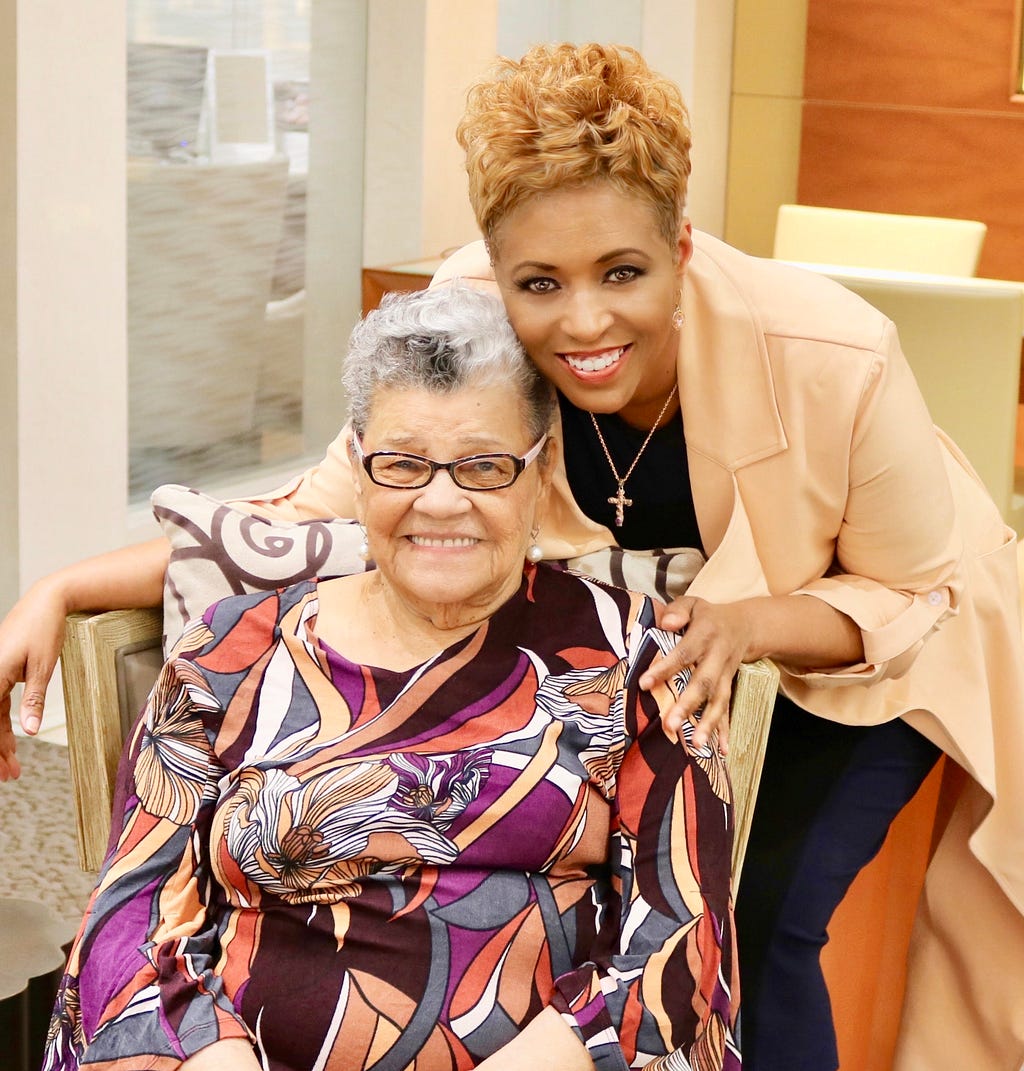By Deborah M. Jackson
How Caregiving Changed My Life (Part 1)
by Deborah M. Jackson
November is National Family Caregivers Month. This 2-part series is an effort to raise awareness, bring perspective on what caregivers do, offer understanding about the broader impact of caregiving, and empower our communities with greater resources.

When I was 22, I never imagined a future where I was a caregiver. Like most, I rarely thought of my life in the context of aging — perhaps because doing so could force uncomfortable conversations about mortality. I’ve found that there’s often more comfort in focusing on the present more than there is considering tomorrow and the sacrifice it requires.
Defining Caregiving
Webster’s Dictionary defines caregiving as someone who provides direct care (as for children, elderly, or chronically ill). Caregivers can be formal (those paid to provide care, like nurses, sitters, etc.) or informal (those not paid to provide care, like family members).
Like many circumstances in life, we tend to pay more attention when we become caregivers ourselves. For me, becoming a caregiver exposed me very quickly to just how many different types of caregivers exist, and just how many of us there are around the world.
According to the Family Caregiver Alliance, there are over 53 million informal caregivers in the United States. Of these, 10 million are caring for someone with Alzheimer’s or related Dementia; by 2050 this number will triple. The remaining 43 million includes millennials caring for parents and grandparents, parents caring for disabled children, husbands, wives, siblings, and adult children caring for loved ones with chronic illnesses (like uncontrolled diabetes, stroke, ALS) and more. For most, the caregiving role is not planned. It typically, suddenly presents itself in an unforeseen, unexpected and traumatic turn of life-events.
Caregiving Ages and Responsibilities
It’s incredibly important to gain a clear perspective on how caregivers directly impact the day to day realities of our overall quality of life — Spiritually, Psychologically and Socio-Economically.
The Family Caregiver Alliance describes the most common age range of caregivers as 21–85. Currently, 10 million millennials have put their aspirations (schooling, careers, families, travel etc.) on hold to take care of a loved one. Because studies show we are living longer, baby-boomers are at the fastest rate of becoming caregivers between the ages of 55 and 65. As such, Alzheimer’s and Dementia-Related caregivers are of the greatest comprehensive concern to the country.
Alzheimer’s and Related Dementia
There are a total of eleven types of Dementia. Alzheimer’s is just one of these, but it’s one of the most severe. In 2017, Alzheimer’s caregivers provided approximately 18 billion hours of care, valued at $232 billion. By 2050 this number is expected to increase above $500 billion. As a result, the future burden on healthcare systems and communities is unimaginable; the direct and indirect impact, as well as its ripple effects will be severe.
According to Alz.org, Alzheimer’s is now the 6th leading cause of death in the U.S., killing more people than breast and prostate cancer combined. Caregiving for those with cognitive challenges requires more oversight due to numerous symptoms making it impossible for loved ones to be left alone. Symptoms vary from person to person and can include:
- Personality Changes: withdrawal, agitation & mood swings, loss of initiative/motivation, repetitive speech, communication difficulties, etc.
- Difficulty w/Familiar Tasks: paying bills, preparing meals, forgetting to eat meals, driving, managing medications, personal hygiene (like brushing teeth, bathing, combing hair), selecting clothing, dressing, etc.
- Mental Challenges: impaired judgment, short-term memory loss, difficulty with problem solving, misplacing things, confusion w/ time or place (including wandering), impaired recognition of family members or other special relationships, paranoia/delusions, etc.
To learn more about Alzheimer’s Disease and related dementia, Healed3D® Inc. offers educational programs such as Helping Communities Face the Fears of Dementia (HCFFD) for organizations, families, and community systems. HCFFD programs in 2018 can be requested by family caregiving groups, community initiatives, churches, senior/aging providers, retirement/assisted living campuses, universities, and hospitals.
On November 9 & 10, we’re even hosting a summit for caregivers, faith communities, and healthcare professionals. The goal of this summit is three-fold. We aim to:
- Elevate the knowledge about Alzheimer’s research and the resources available for caregivers;
- Better equip family caregivers or professional healthcare providers; and
- Empower family and professional caregivers on their Alzheimer’s journey.
To do so, we’re bringing together the power of faith and inspiration, with education and guidance from seasoned caregiving experts and healthcare professionals. Registration is open now.
In Part 2, we’ll continue discussing the impact of caregiving.
Follow us & get updated!
Instantly connect to what's most important to you.